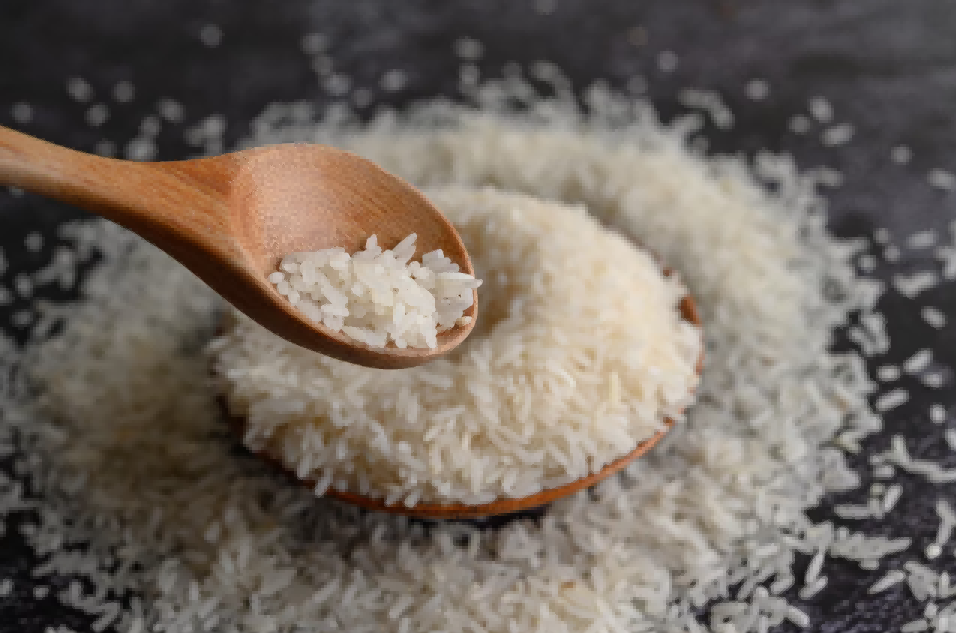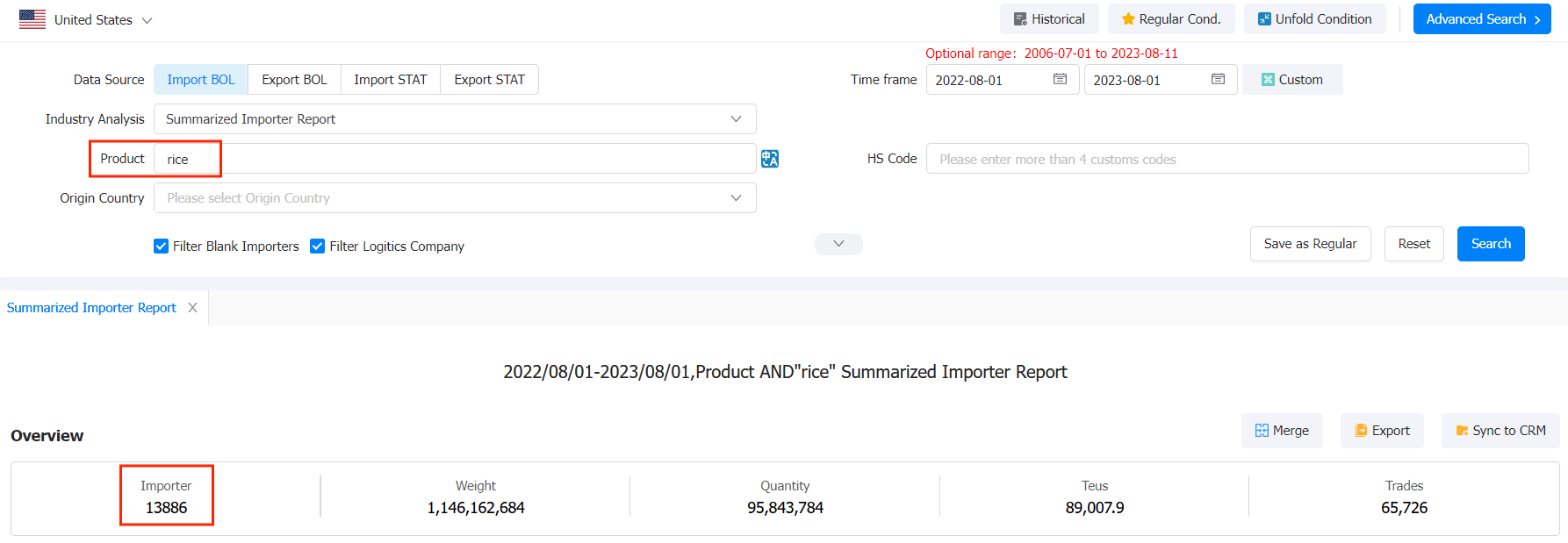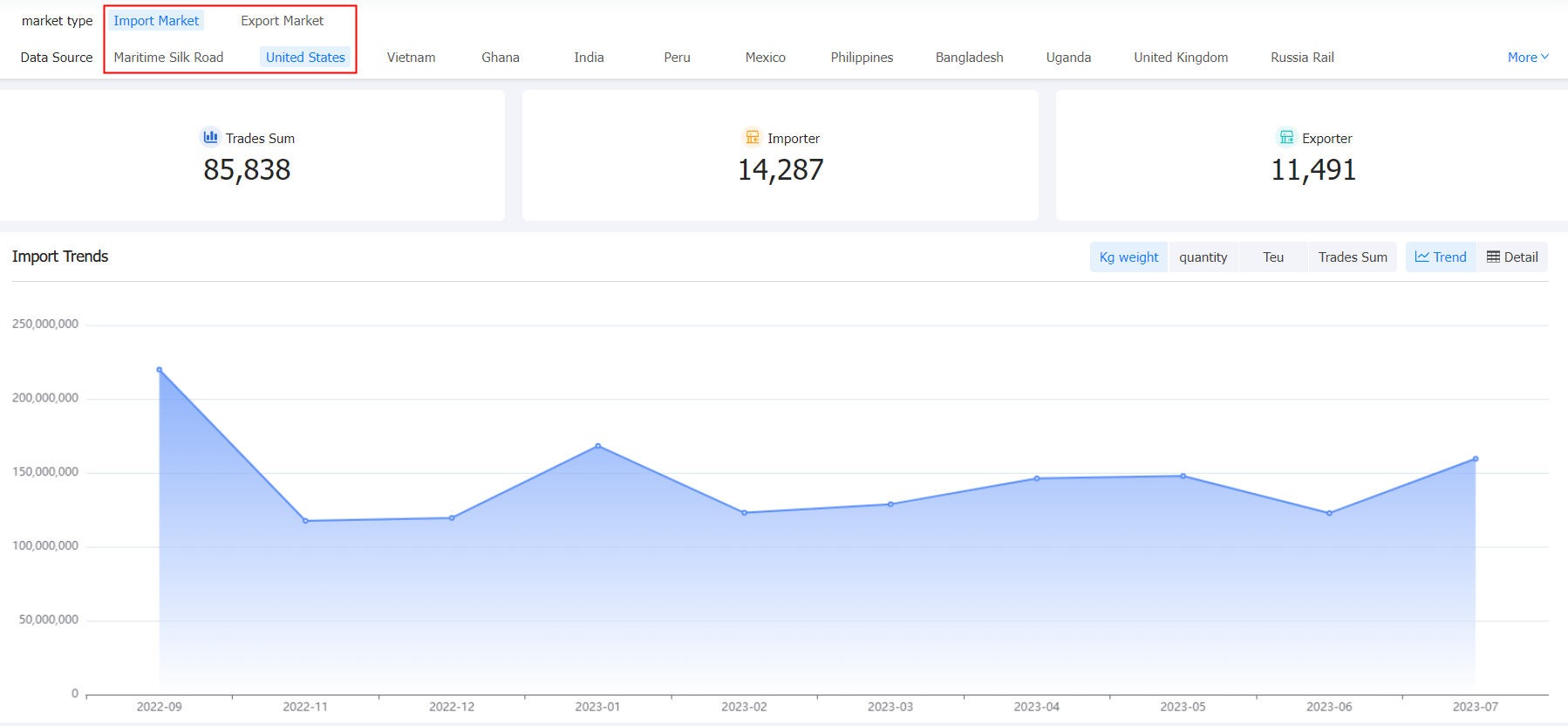 Import News
Import News
 16-08-2023
16-08-2023
In the complex realm of international trade, importers play a pivotal role in bridging the gap between global supply and domestic demand. They serve as the conduits through which diverse products, flavors, and cultures flow into a country. For importers, success lies not only in sourcing the right products but also in building robust partnerships, adhering to regulations, and understanding market dynamics. This exploration delves into the art of leveraging customs data to efficiently and effectively identify rice importers in the United States. By harnessing the power of customs data, importers can navigate the intricate landscape of international trade with precision and insight.

The Flourishing Rice Market in the USA: A Snapshot
The United States stands as a melting pot of cultures, and its diverse culinary preferences fuel a significant demand for rice varieties from around the world. As one of the largest consumer markets, the USA's appetite for rice continues to grow steadily. This demand, driven by an array of cultural influences, presents a promising landscape for rice importers to capitalize on.


Customs Data: A Goldmine of Insights
Customs data serves as a treasure trove of insights for importers seeking to connect with rice suppliers. Here's how customs data can empower importers in their quest to locate reliable rice importers:
>>>Get A Free Demo - Rapidly Increase Company Revenue<<<
· Market Analysis: Unveiling Consumption Trends
By analyzing customs data, importers gain valuable insights into consumption patterns. This information helps importers identify trends, such as the popularity of specific rice varieties or packaging preferences, ensuring that they align their offerings with consumer demands.(>>>Get A Free Demo)

· Customer Identification: Precision in Partnerships
Customs data provides a detailed breakdown of imports, including information about the origin, quantity, and value of imported goods. This data allows importers to pinpoint potential buyers based on their historical trade records.(>>>Get A Free Demo)

· Competitor Analysis: Staying Ahead of the Game
Customs data not only reveals import volumes but also unveils key competitors in the market. Importers can analyze the market share of various suppliers, identify emerging players, and devise strategies to gain a competitive edge.(>>>Get A Free Demo)

· Risk Assessment: Mitigating Challenges
Customs data enables importers to assess the risk associated with specific suppliers or regions. By identifying potential challenges, importers can proactively develop risk mitigation strategies.(>>>Get A Free Demo)
· Tapping into the Power of Data: Trade Trends and Strategies
Customs data isn't just about historical insights; it's a window into future trade trends. By examining historical data and identifying emerging market shifts, importers can strategically align their offerings with the evolving demands of the American consumer.
Navigating the Future: A Data-Driven Advantage
In a rapidly changing trade landscape, the role of importers remains crucial in connecting consumers with the world's diverse products. By harnessing customs data, importers gain a data-driven advantage that goes beyond intuition. They can confidently identify and partner with rice importers who meet quality standards, consumer preferences, and regulatory requirements. As the demand for international flavors continues to rise, importers armed with customs data are poised to navigate the exciting journey of sourcing and supplying rice to satisfy the ever-evolving tastes of the American market.
Category
Leave Message for Demo Request or Questions


 T-info
T-info T-discovery
T-discovery

 My
Tendata
My
Tendata Market Analysis
Market Analysis Customer
Development
Customer
Development Competitor
Monitoring
Competitor
Monitoring Customer Relationship
Customer Relationship





































































































































